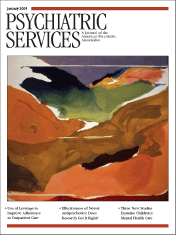Race, Urban Community Stressors, and Behavioral and Emotional Problems of Children With Special Health Care Needs
Abstract
OBJECTIVES: This study examined the relationship of community-level stressors to behavioral and emotional problems among African-American and white children with special health care needs. METHODS: The authors interviewed 257 low-income caregivers of children with special health care needs in an urban Midwestern city who brought their child for a primary health care visit to a community health center between September 2001 and May 2002. Sociodemographic characteristics as well as information about the children's behavioral and emotional problems, the health status of the children, perceptions of urban community stress, access to health care, and satisfaction with health care were collected to determine racial differences in the impact of urban stress on behavioral and emotional problems. RESULTS: Urban community stressors, race, and child's health status were significantly associated with behavioral and emotional problems among children with special health care needs. The association between urban stress and total behavioral problems did not differ by race. CONCLUSIONS: When caring for children with special health care needs, especially those with emotional or behavioral problems, primary care providers may be better able to identify important aggravating factors if they also assess urban stress. Systems of care are needed that can assist in addressing urban community-level stressors.



